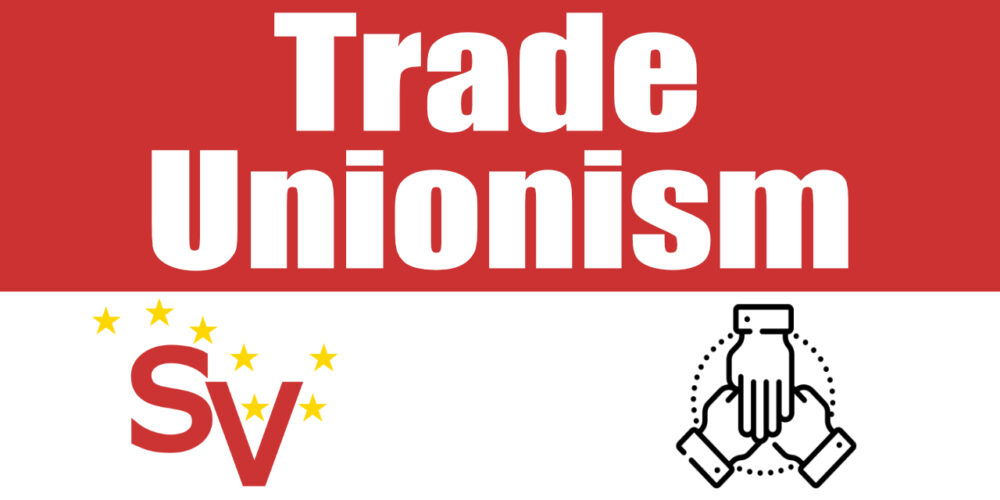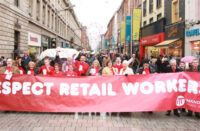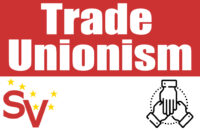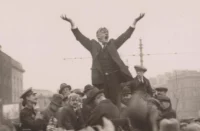A call to action for communist and progressive trade unionists
The cost-of-living crisis—or, as the CPI more accurately describes it, the cost of greed—is now hitting working people hard throughout the country. It is time for clear demands from the trade union movement, and the leadership to win. But rest assured that no-one will present us with this as a gift.
The role of a union is very simple—and sometimes it feels that this has been forgotten. Listen to members. Clarify and crystallise that feedback into concrete demands. Place those demands as claims on employers or the Government. Communicate and mobilise on those claims, both internally, with members, and externally, with the class more generally. Agree appropriate tactics for trying to win an acceptable outcome of the claims; and, above all else, as the late and wonderful Tom Redmond always reminded me, come out of the struggle structurally a stronger union.
That strength could mean workers more educated in class politics, or with more workers as members of the union, or with more activists involved—preferably all three!
This is the simple method that all progressive shop stewards or union staff should apply. Maybe I could be accused of “gas and water” socialism; but this is not a prescription for a communist party but for communist trade unionists.
Only if we engage workers actively in the struggle over wages and profits are unions a school of socialism. Otherwise they are mere yellow unions, staff associations, or communication forums for employers.
We now have a combination of rising costs, rising profits, rising inflation, and below-inflation pay increases. This is a transfer of wealth from working people to the already rich and the investor class of financiers and their functionaries. It is clear, just as in 2009, that once again working people are robbed to increase the wealth of the rich. These are moments of great robbery. A Great Theft is occurring right now.
Inflation in the Republic has remained, two months in a row, at 9½ per cent. Inflation throughout the EU is at 9 per cent. Inflation in Britain is now at 10 per cent. Globally, energy prices were expected to rise by 50 per cent this year, but more recent estimates suggest it could be over 80 per cent. Bord Gáis electricity has been rising by 72 per cent since October 2020 and gas by 82 per cent.
Let us remember that the privatisation and sale of An Bord Gáis was a condition of the EU-IMF bail-out of the banking system (by way of the state, finally completed in 2014) in the last Great Theft. The profit of Centrica, the British owners of An Bord Gáis, increased from £262 million in the first half of 2021 to £1.34 billion in first half of 2022!
The annual earnings of BHP, the world’s largest mining company, jumped by 26 per cent, to $21.3 billion, its highest since 2011. Last year the ESB Group had a 10 per cent increase in its operating profits, to €679 million, while its dividend to the state rose by more than half, to €126 million. Thankfully, as an enterprise with a majority state ownership, it at least is paying a significant dividend to the state—unlike An Bord Gáis (as opposed to Gas Networks, the retained pipe infrastructure, which paid €70 million in dividend). Unfortunately, however, the ESB is forced to artificially raise its prices to allow for “competition,” so that other providers can make a profit off us in an oligopoly cartel-style market.
The complete dysfunction of EU market regulations (or deregulation) is fully on display here, failing both workers and customers but rewarding profiteers through price-fixed oligopoly conditions.
BP’s profits rose to $8.45 billion. The world’s five largest oil companies achieved a total of more than £50 billion in profit! The two largest Irish banks acquired nearly €1 billion in half-year profits for the first six months of 2022, with little or no “competition.” Tesco had a surge of 36 per cent in profit, to £2.6 billion. The list of statistics could go on.
Yet union-negotiated pay deals for twelve months have been in the region of 3 and 3½ per cent and the better ones between 4 and 5 per cent. In effect this is, bluntly, pay cuts and record profits.
Listening to union members in meetings and work-places, listening to friends and neighbours in our estates, communities, and GAA clubs, the twofold nature of the crisis is very clear: wages aren’t going up enough, and prices are spiralling out of control. Our job as trade unionists is to concretise this into the twofold demand for (1) significant pay increases and specific cost-of-living payments from employers and (2) price controls on all major expenses (utilities, transport, food, accommodation) from the Government.
This requires a coordinated campaign both in work-places and at the political level. But we appear to be very far from this in the trade union movement at this moment.
The job of communists in unions is to put forward at every opportunity this strategy of what our unions should be doing. No-one will make a gift of this strategy: we have to actively fight for it. Nor can we, or should we, import approaches from Britain or elsewhere, whether through British unions here in Ireland or just through internet fads. While the struggle, and class, is international, our structures and strategies have to be based on our national conditions first and then reaching out further afield.
Just now, in our class conditions, we don’t need vanity “political” projects, failed industrial action, or narcissistic leaders inflating their ego. Nor do we need people begging for white knights or saviours from afar. We need communists active in their unions putting forward these clear demands for better pay increases and cost-of-living payments in high-profit sectors as well as demands of the Government to implement price controls.
We need to build our unions’ and workers’ confidence in success, always raising expectations, ambitions, class confidence, and the organised structures of workers.






